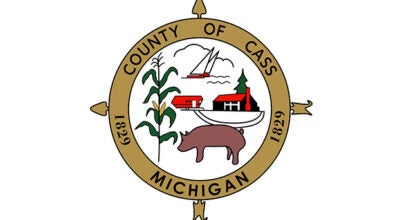Woodlands director highlights successes, challenges in annual report
Published 8:00 am Tuesday, April 12, 2016
In spite of continuing challenges with regard to funding, 2015 was a “good year” for the staff and patients of Woodlands Behavioral Healthcare Network.
Woodlands CEO Kathy Emans highlighted the growth — and ongoing challenges — experienced by the Cass County mental health organization last year during her annual presentation to the members of the Cass County Board of Commissioners during their meeting Thursday night in Cassopolis.
2015 was a milestone year for Woodlands, as it celebrated its 50th anniversary as a Michigan community mental health organization. From its inception in October 1965 to today, the organization has served the mental and behavioral health needs of the population of Cass County, through its facilities in Cassopolis.
Woodlands improved upon these offerings and services throughout the past year, developing several new partnerships with other community entities, Emans said. Among these agreements were:
• Participation in the Regional Mental Health Court program with Berrien County
• Participation in the Michigan Veterans Trust Fund
• Participation with the Battle Creek Veteran’s Administration Telehealth projects
• Participation in the University of Michigan MC3 project
One area the organization focused on in particular in 2015 was trauma, Emans said. Woodlands staff increased the amount of trauma assessments performed last year, in particular with children removed from homes due to abuse or neglect, as well as providing education to other healthcare providers on how to deal with patients struggling with strong emotional damage, Emans said.
“We’ve done a lot of community education over this past year,” the CEO said. “It’s not necessarily reflected in some of our numbers…but I think it’s a valuable service.”
The agency served slightly less patients in 2015, with 1,465 individuals served compared to 1,506 the prior year. There was a slight decrease in the amount of patients seen with a substance abuse issue last year as well, which Emans said was likely caused by a reduction in the amount of people referred to Woodlands through court treatment programs.
The staff did receive significantly more children for autism spectrum disorder services last year, though; a trend that the CEO expects to continue into the future, Emans said.
“That’s a very service intensive, high cost early intervention [program],” Emans said. “We’re trying to locate children, age 6 and below, to help them develop those social skills which then might decrease some of their learning and social impairments later in life.”
Like other community health organizations throughout Michigan, Woodlands continues to experience reductions in state funding that have constrained its operating budget, Emans said. The agency is operating with about 40 percent of the funding it received just five years ago, she said.
While appropriations from the county have remained consistent, fluctuations with Medicaid funding has also been something the agency has had to work around in recent years.
“It does challenge some things, and we’ve had to be slightly creative at times in order to provide services,” Emans said.






